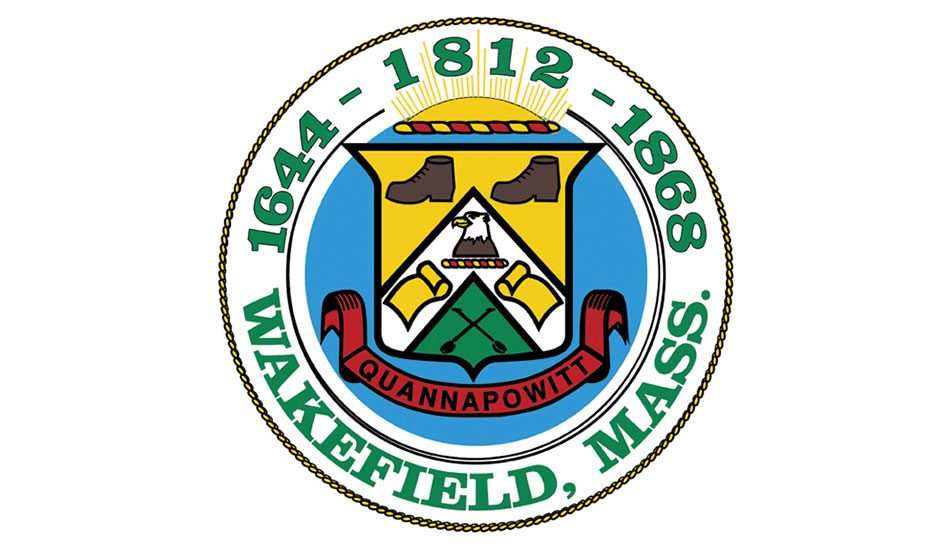By MARK SARDELLA
WAKEFIELD — Under Article 4 at Saturday’s Regular Town Meeting, the voters of Wakefield gave their approval for the Northeast Metropolitan Regional Vocational School Committee to borrow $317,422,620 for the purpose of designing and constructing a new Northeast Metro Tech on Hemlock Road.
Northeast Metro Tech has been accepted into the Massachusetts School Building Authority’s funding program for the construction of a new school. The regional vocational technical high school serves a 12-community district including: Chelsea, Malden, Melrose, North Reading, Reading, Revere, Saugus, Stoneham, Wakefield, Winchester, Winthrop, and Woburn.
Each of the 12 member communities will be asked to to authorize the full borrowing but will be financially responsible for only their share. No appropriation of funds was associated with Article 4.
Brittany Carisella, Wakefield’s representative on the Northeast Metro Tech School Committee, introduced Superintendent David DiBarri to discuss the project.
“Our building has come to the end of its life,” DiBarri said. “We need a new building. Systems are failing and don’t come close to meeting current standards.”
He noted that the building is poorly insulated and energy inefficient. Most classrooms are undersized by current Department of Education standards and the building is not handicapped accessible, DiBarri added.
The fact that there is just one road leading in and out of the school is a real safety concern, he said.
Building a new school will allow Northeast to increase its student enrollment from the current 1,200 to 1,600. DiBarri said that the school has the longest wait list of any public school in Massachusetts.
He said that every option was looked at and new construction was chosen based on the minimum disruption to education.
DiBarri asked Northeast Metro Tech’s financial consultant Charles Lyons to address the funding issues. Lyons said the 49 percent of the costs of building the new school would be borne by Malden, Revere and Chelsea. Each member community will pay the same per pupil cost, he noted, and Wakefield’s enrollment could increase from 100 to 124.
Lyons said that the MSBA grant for the new school will be the largest in the history of the state agency. There is also a potential that $30 million an ARPA federal COVID relief funds could be applied to the project, lessening the financial burden on member communities.
Elm Street’s Daniel Lieber noted that the construction would be disruptive. He asked what services would be available to the Wakefield community at the new vocational school.
DiBarri noted that the school offers a bank, a restaurant, cosmetology and autobody departments, all of which are open to the public. He said that the new building will make those services more easily accessible to the public.
The new school will also have an auditorium that Wakefield can use, DiBarri said.
Bob Brooks of June Circle noted that the budget includes both reimbursable costs and costs that are non-reimbursable by MSBA.
Frank Conte said that he supported the project, adding that he was pleased with the education his daughter received there. He maintained that there was a real need to get more people into the trades, like carpentry and plumbing.
Dan Sherman of the Finance Committee said that the town can afford its share of the cost of the new school. He said that the second access road that is part of the plan will help to relieve pressure on Farm and Nahant streets.
Marie Rej, chair of the Commission on Disabilities, also supported the project and encouraged more consideration of people with different kinds of disabilities.
Marie Oliveira of Nahant Street wanted to know how long the construction would take and what traffic mitigation measures would be in place.
Lyons said that the project would take about four years and most construction vehicles will use the new access road, not Hemlock Road. He said that the school would work with neighbors impacted by the project.
Benny Wheat of Meriam Street said she was in favor of the project. She asked what Wakefield’s share of the cost would be.
DiBarri said that Wakefield would be responsible for about 7.81 percent of the cost, based on enrollment. Town Administrator Stephen P. Maio added that Wakefield’s cost would come to about $800,000 a year, including interest. He said that it could be handled within the tax levy.
Bob McLaughlin of Water Street, an electrician, said he favored the project because more people are needed in the trades. He observed that most of those attending the required Massachusetts Electrical Code update classes are over 50.
Light Commissioner Thomas Boettcher read a letter from his board encouraging incorporation of maximum energy efficiency measures in the project.
Light Commissioner Jennifer Kallay said that she hoped the school would reconsider its plans to use natural gas to heat the new facility.
Town Meeting approved the new Northeast Metro Tech plan by a vote of 100-6.
(According to news reports, Saugus Town Meeting and the Chelsea City Council have rejected the funding for the new school. When any member community rejects the plan, the likely scenario is a district-wide election where the overall majority will decide the fate of the project.)
—————
Here’s how other business at Saturday’s Town Meeting shook out.
Under Article 1, voters heard from Town Administrator Stephen P. Maio and Finance Committee member Daniel Sherman who provided a final report on Fiscal Year 2021 (July 1. 2020-June 30, 2021).
Maio noted in his report that the town closed the year with $7.8 million in the Free Cash account. He made a motion under Article 2 that the town use $2.5 million from Free Cash to balance the FY 2022 budget. Voters approved the motion.
Under Article 5, Town Meeting voted to implement a collective bargaining agreement between the town and the Lucius Beebe Memorial Library Staff Association. Maio said that the financial terms of the contract were very similar to other town employee union contracts. The $30,000 needed to fund the contract will come from Free Cash.
Town Meeting approved another $30,000 from Free Cash under Article 6 in order to fund Sunday library hours beginning in January and running through June 2022.
Under Article 7, voters approved $400,000 from Free Cash to fund roadway, sidewalk and drainage improvements on Broadway along with the purchase and installation of “quad gates” at the Broadway commuter rail crossing. Maio said that he expects a federal earmark to fund the cost of the gates. Quad gates block all lanes of traffic in both directions and will help ensure that the town never again faces the long-term closure of a rail crossing or the loss of its Quiet Zone, Maio explained.
Article 8 was sponsored by the Commission on Disability Issues and sought to change the name of the group to the “Commission on Disabilities.” It was posited that the word “issues” has negative connotations. Town meeting approved the change.
Article 9 was a citizen petition to repeal a section of the Zoning Bylaws related to building near open streams. The matter was not taken up by Town Meeting. According to Town Moderator William Carroll, Article 9 was “not ripe for action.”
Town Administrator Stephen P. Maio made a motion to dissolve Town Meeting at 10:45 a.m. According to Town Clerk Betsy Sheeran, attendance reached a high of 116 at Saturday’s session.




